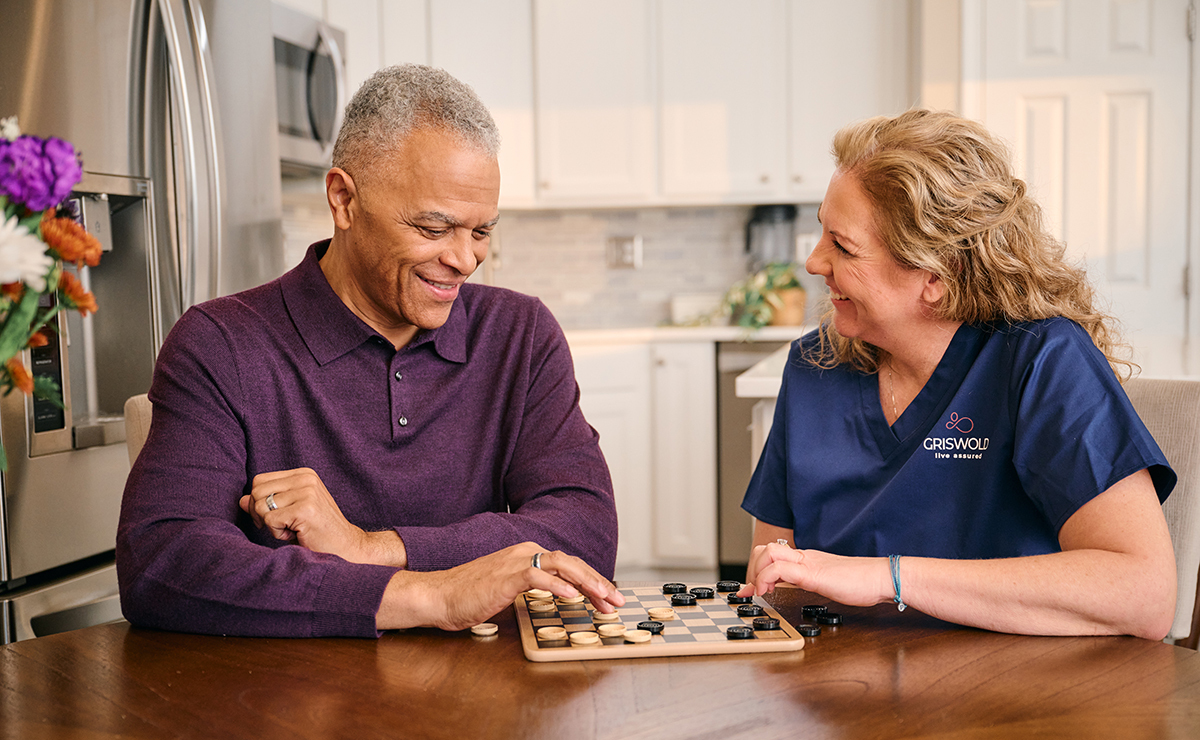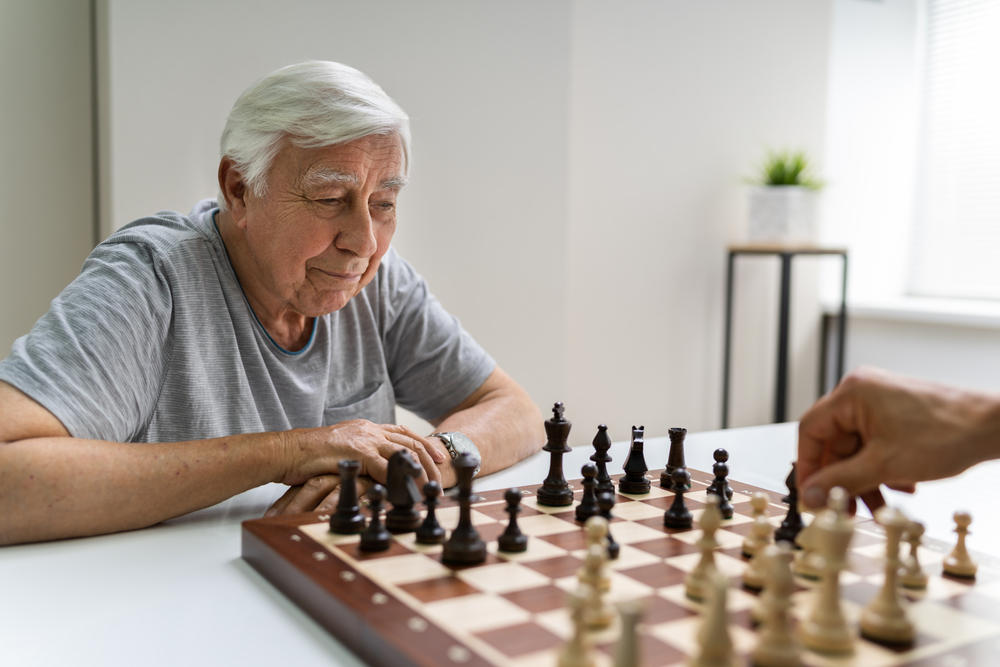Involuntary Chewing Motion in Elderly Adults
Category:

As a caregiver for an elderly adult, especially for one with cognitive or neurological changes, you might observe them constantly chewing even if there’s nothing in their mouth. This unintentional chewing motion in older adults is known as phantom chewing or geriatric chewing. Addressing involuntary chewing is crucial as it can affect nutritional intake, oral health, and overall comfort. So, what causes elderly people to chew for no apparent reason?
Involuntary Chewing Motion in Elderly Adults
Elderly individuals might chew without food in their mouth due to various reasons, including:
- Dental Health and Muscular Activity. The loss of teeth, a common occurrence with age, can lead to the weakening of the mouth and facial muscles. The involuntary chewing motion can be a subconscious effort to keep these muscles active. Moreover, the adaptation to dentures can be uncomfortable, prompting a constant chewing motion as the individual adjusts. Regular dental check-ups are essential to ensure dentures fit correctly and do not contribute to discomfort.
- Dry Mouth and Saliva Production. Dry mouth is another trigger for involuntary chewing, as the individual may be trying to stimulate saliva production. Solutions can range from over-the-counter mouthwashes to sugar-free gums, but it’s crucial to identify any underlying causes of dry mouth, such as medication side effects or dehydration.
- Tardive Dyskinesia. Some constant chewing is caused by a condition known as tardive dyskinesia, a disorder marked by random muscle movements in the face, tongue, lips, or jaw. The condition is generally caused by long-term use of antipsychotic medications and is sometimes seen in elderly patients who have been using these medications for a long time.
- Dementia Symptoms. A type of behavior often seen in dementia patients is called perseveration. Perseveration is the repetition of a gesture, word, or phrase, such as repeating a word over and over or constantly clapping. A dementia-related chewing motion would be considered perseveration.
Is Mouth Hanging Open a Sign of Dementia?
A symptom of constant chewing is a dementia patient’s mouth hanging open. This results from memory loss and the brain’s failure to tell the body to keep the mouth closed. Usually, if you remind the dementia patient to close their mouth, it will stay closed for a while. The mouth hanging open can also indicate uncomfortable dentures, which a dentist can check.
Download Our FREE Dementia Guide for Seniors
Managing the Behavior
Remember that your loved one does not have complete control over their mouth hanging open or their constant chewing, and they are not doing it to annoy or get attention. While the chewing can be irritating and challenging to listen to, try to stay calm and practice patience as much as possible. Consistent engagement and gentle reminders can help manage these behaviors, but always approach these situations with empathy and understanding. If the behavior becomes concerning or seems to indicate discomfort, consult with healthcare professionals for a thorough assessment and to discuss potential management strategies.
Subscribe
Date: 2023-11-09
Category:


